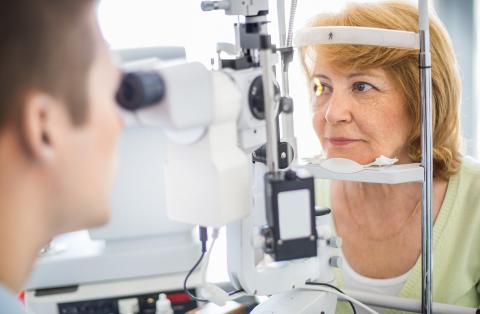Understanding Glaucoma
The most common form of glaucoma, primary open-angle glaucoma, usually has no symptoms in the early stages. As many as half of people with early-stage glaucoma do not have any symptoms, and a person can lose up to 40% of vision without noticing a big change. As the disease progresses, symptoms may include:
- Gradual loss of peripheral vision
- Tunnel vision in advanced stages
- Seeing halos around lights
- Eye pain
- Redness of the eye
There are other forms of glaucoma that can have different symptoms. For example, acute angle-closure glaucoma can cause sudden onset of symptoms such as severe eye pain, nausea and vomiting, blurred vision, and seeing rainbow-colored circles around lights. It is important to see an eye doctor if you are experiencing any of these symptoms, as glaucoma can lead to permanent vision loss if left untreated. Talk to your family to understand if you are at increased risk of developing glaucoma.
There is no cure for glaucoma, but it can be managed with medication, surgery, or a combination of both. Medications, such as eye drops and pills, can help lower pressure inside the eye and protect the optic nerve. Surgery, such as laser trabeculoplasty or trabeculectomy, can also help to lower the pressure by creating a new channel for fluid to drain out of the eye.
It is important to follow your treatment plan and get regular eye exams to monitor the health of your eyes and prevent further vision loss. If you have glaucoma, it is also important to protect your eyes from injury, as a sudden increase in intraocular pressure can cause further damage to the optic nerve.
Here are a few myths about glaucoma and vision loss:
Myth: Glaucoma only affects older people.
Fact: While glaucoma is more common in older people, it can also affect younger people. It is important for people of all ages to have regular eye exams to check for glaucoma and other eye conditions.
Myth: Only people with high eye pressure have glaucoma.
Fact: While high eye pressure is a risk factor for glaucoma, it is not the only factor. People with normal eye pressure can also develop glaucoma.
Myth: Wearing glasses or contacts can cause glaucoma.
Fact: Wearing glasses or contacts does not cause glaucoma. Glaucoma is caused by damage to the optic nerve, which can be caused by high eye pressure or other factors.
Myth: Glaucoma is not serious and can be treated with over-the-counter eye drops.
Fact: Glaucoma is a serious eye condition that can lead to permanent vision loss if left untreated. While over-the-counter eye drops may help with some symptoms, they are not a cure for glaucoma. It is important to see a doctor for proper diagnosis and treatment.
